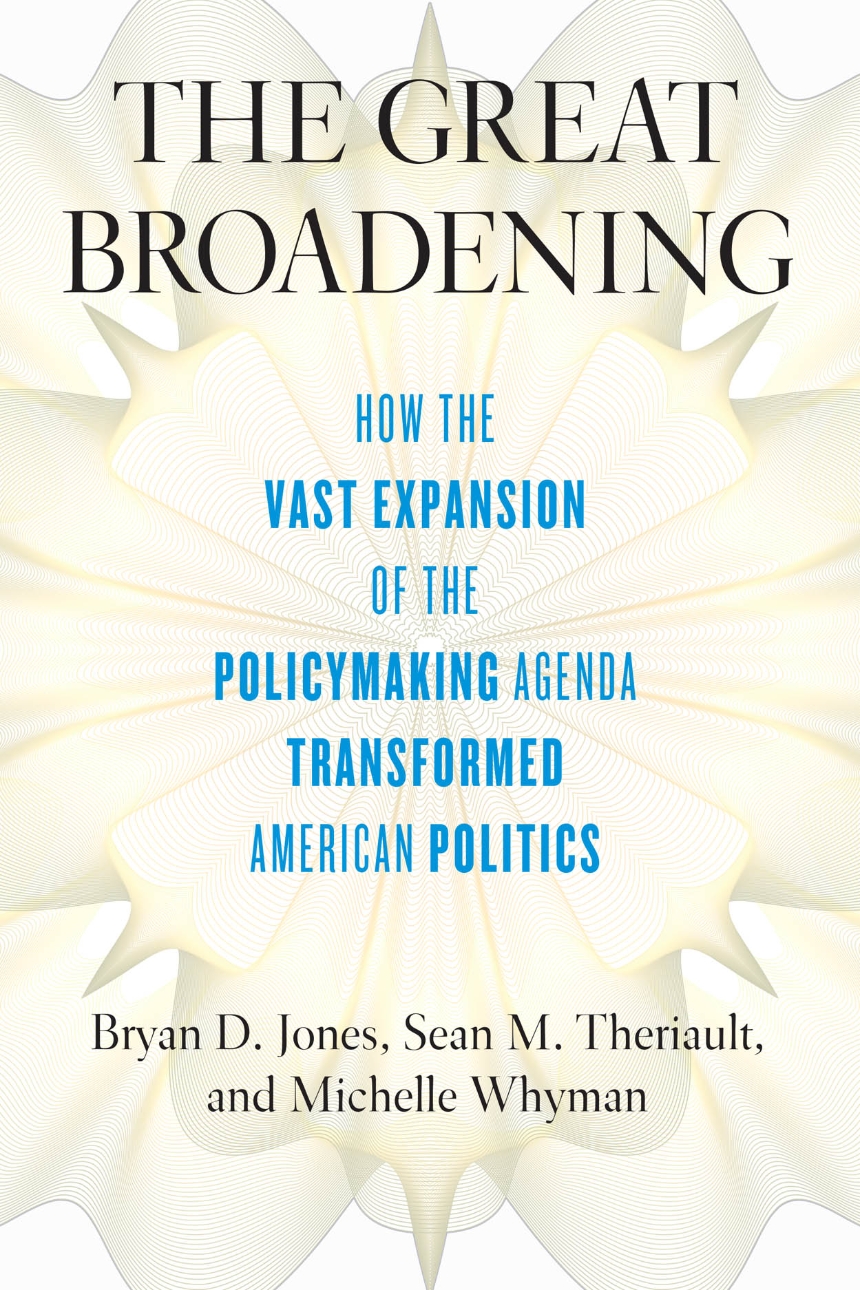The Great Broadening
How the Vast Expansion of the Policymaking Agenda Transformed American Politics
9780226625942
9780226625805
9780226626130
The Great Broadening
How the Vast Expansion of the Policymaking Agenda Transformed American Politics
Beginning in the late 1950s and continuing through the 1970s, the United States experienced a vast expansion in national policy making. During this period, the federal government extended its scope into policy arenas previously left to civil society or state and local governments.
With The Great Broadening, Bryan D. Jones, Sean M. Theriault, and Michelle Whyman examine in detail the causes, internal dynamics, and consequences of this extended burst of activity. They argue that the broadening of government responsibilities into new policy areas such as health care, civil rights, and gender issues and the increasing depth of existing government programs explain many of the changes in America politics since the 1970s. Increasing government attention to particular issues was motivated by activist groups. In turn, the beneficiaries of the government policies that resulted became supporters of the government’s activity, leading to the broad acceptance of its role. This broadening and deepening of government, however, produced a reaction as groups critical of its activities organized to resist and roll back its growth.
With The Great Broadening, Bryan D. Jones, Sean M. Theriault, and Michelle Whyman examine in detail the causes, internal dynamics, and consequences of this extended burst of activity. They argue that the broadening of government responsibilities into new policy areas such as health care, civil rights, and gender issues and the increasing depth of existing government programs explain many of the changes in America politics since the 1970s. Increasing government attention to particular issues was motivated by activist groups. In turn, the beneficiaries of the government policies that resulted became supporters of the government’s activity, leading to the broad acceptance of its role. This broadening and deepening of government, however, produced a reaction as groups critical of its activities organized to resist and roll back its growth.
328 pages | 90 line drawings, 4 tables | 6 x 9 | © 2019
Political Science: American Government and Politics
Table of Contents
Preface and Acknowledgments
Chapter 1: The Great BroadeningPart 1: The Internal Dynamics of the Great Broadening
Chapter 2: Crossing the Legitimacy Barrier
Chapter 3: Arcs and Plateaus
Chapter 4: Dynamics of the Great Broadening
Part 2: Causes of the Great Broadening
Chapter 5: Causes of the Great Broadening: Conventional Explanations
Chapter 6: Causes of the Great Broadening: The Role of Social Movements
Chapter 7: Feedback Politics
Part 3: Consequences of the Great Broadening
Chapter 8: Transformation of US Law: Broadening and Then Thickening
Chapter 9: The Administrative State and Its Legislative Oversight
Chapter 10: Polarization in Congress: A Macro-Level Analysis
Appendix: Granger Causality
Chapter 11: Microstory of Polarization in Congress
Chapter 12: The Interest-Group System
Appendix
Chapter 13: Politics of Conservative Reaction
Chapter 14: Extreme Events, Feedback Policy-Making, and American Politics
Notes
List of References
List of References
